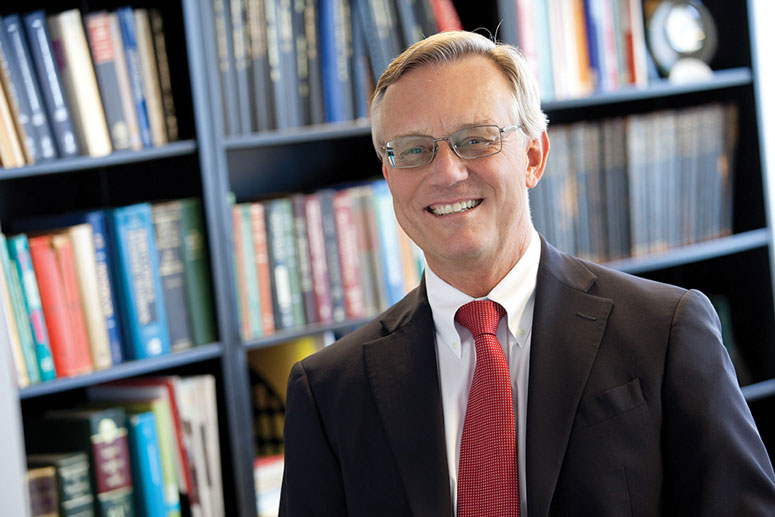
“A discovery is said to be an accident meeting a prepared mind.” —Albert Szent-Györgyi
For any university to be great, its faculty members need to be scholars as well as teachers. That means they must continue to hone their academic disciplines through research and other creative enterprises and to publish their findings. Even though excellent classroom teaching is their primary academic duty, faculty members also have a responsibility to extend the boundaries of knowledge because it is in this pursuit that the creative aspect of education is found and the seeds of innovation are sown.
Research—and other creative endeavors—has many starting points. It might begin as a question over coffee with a colleague and then move to a search of the existing literature to see what other scholars have learned about the issue or how they have approached a particular problem. The next step might be a study based upon observation of behavior or a laboratory experiment.
All good research, however, has certain things in common. It is rigorous, reproducible, and methodical. Publications are subject to peer review by experts; other researchers are able to follow the process and replicate the results. From the research come more questions, which will lead to additional discovery.
It is through research that important “life lessons” are also learned. Not all experiments are successful and not all good ideas will bear fruit. Collaboration will sometimes provide insight that escapes the lone practitioner. Small advances may be necessary before true innovations can emerge. And every answer comes with at least one more question.
At Illinois Institute of Technology, our undergraduate and graduate students are often full participants in the research studies initiated by our faculty, and sometimes they initiate the research themselves. They see firsthand how recognized scholars go about the task of advancing knowledge and creating new processes and things. Our graduate students, especially those pursuing the doctoral degree, understand that at this university they are indeed “standing on the shoulders of giants” and that after they graduate, they are expected to contribute to their fields and mentor those whose educational experience is just beginning.
As a professor of chemical engineering who has taught courses to students from the first year to the doctoral level, I have found that my research has kept me at the forefront of my field and energized about my profession. I worked hard to share this energy and excitement with the Ph.D. and M.S. students whose research I directly supervised and the many other students whose research I aided. While the results of our research are important and have had an impact on technology, I view the education of the student during the research process as the most important outcome.
There are many things about Illinois Institute of Technology that make me proud, and I am glad that I have never been asked to choose just one. However, at the top of my list would be the scholarship of our faculty, their commitment to advancing knowledge, and their ability to share with our students their passion for discovery.
It is to our nation’s research institutions and the students they produce that we must continue to look for the new ideas that will move our world forward, enhance our quality of life, and protect our citizens and environment. I have no doubt that the faculty, students, and alumni of Illinois Tech will be recognized among the major contributors of such new ideas in the years ahead. We are producing the “prepared minds” of the future.
John L. Anderson
President